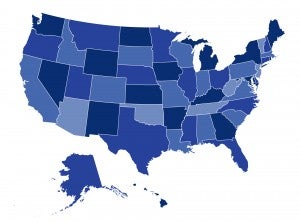Why We Can’t Rely on Health Insurance Alone to Guarantee Universal Immunization Against COVID-19

Many Americans are pinning their hopes on a vaccine to bring COVID-19 to heel. But, as George Washington University and CHIR experts outline in a new blog post for the Commonwealth Fund, our patchwork quilt system of public and private insurance will likely be insufficient to achieve the necessary population-wide immunity.



